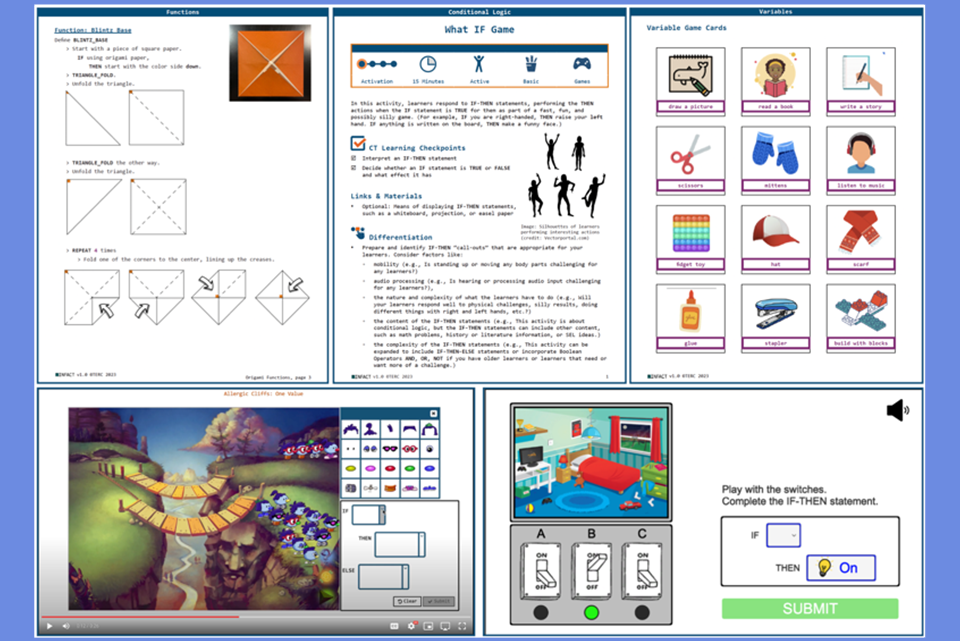A Little EF Support Can Go a Long Way
By Erin Bardar
Computational thinking (CT) requires breaking down problems, sequencing steps, and switching strategies—all of which are closely tied to executive function (EF) skills.
Many neurodivergent students have strong problem-solving skills, which are often masked by EF struggles like organizing thoughts, breaking down problems, and persisting through challenges. By embedding EF scaffolds, we can create a more accessible and inclusive learning experience to let those talents shine.
INFACT (Including Neurodiversity in Foundational and Applied Computational Thinking) is a teaching and learning program for grades 3-8 that offers activities, games, interactives, and other materials (digital and unplugged) for teaching CT. These activities include tools and layouts that highlight salient information; checklists, graphic organizers and problem decomposition to aid working memory; and various reflection and expression tools to support metacognition. Along with these embedded EF scaffolds, INFACT also uses differentiation strategies grounded in Universal Design for Learning (UDL) by offering multi-modal, multi-context activities with multiple entry levels and representations and specific supports for vocabulary and communication.
Our research showed that students in grades 3-5 who used INFACT materials—especially those with low EF skills—improved more in CT problem solving practices than students in comparison classes using other CT programs.
So, can a little EF-support go a long way in revealing the problem-solving talents of neurodiverse learners? INFACT, it can…
Learn more about INFACT here.
Computational thinking (CT) requires breaking down problems, sequencing steps, and switching strategies—all of which are closely tied to executive function (EF) skills.
Many neurodivergent students have strong problem-solving skills, which are often masked by EF struggles like organizing thoughts, breaking down problems, and persisting through challenges. By embedding EF scaffolds, we can create a more accessible and inclusive learning experience to let those talents shine.
INFACT (Including Neurodiversity in Foundational and Applied Computational Thinking) is a teaching and learning program for grades 3-8 that offers activities, games, interactives, and other materials (digital and unplugged) for teaching CT. These activities include tools and layouts that highlight salient information; checklists, graphic organizers and problem decomposition to aid working memory; and various reflection and expression tools to support metacognition. Along with these embedded EF scaffolds, INFACT also uses differentiation strategies grounded in Universal Design for Learning (UDL) by offering multi-modal, multi-context activities with multiple entry levels and representations and specific supports for vocabulary and communication.
Our research showed that students in grades 3-5 who used INFACT materials—especially those with low EF skills—improved more in CT problem solving practices than students in comparison classes using other CT programs.
So, can a little EF-support go a long way in revealing the problem-solving talents of neurodiverse learners? INFACT, it can…
Learn more about INFACT here.

3/11/2025
AuthorErin Bardar is an instructional designer and Education Materials Director for the EdGE at TERC team. Her current work focuses on designing and developing inclusive STEM teaching and learning materials and experiences, with particular attention to differentiation and supporting Executive Function.
SummaryThis blog post describes how executive function (EF) supports can help reveal the problem-solving talents of neurodiverse learners.
Share This Page: